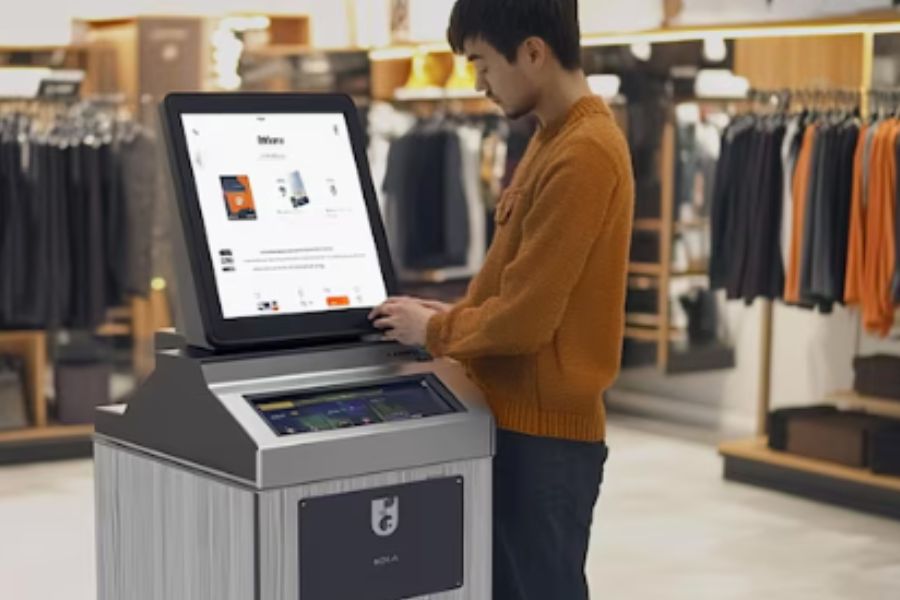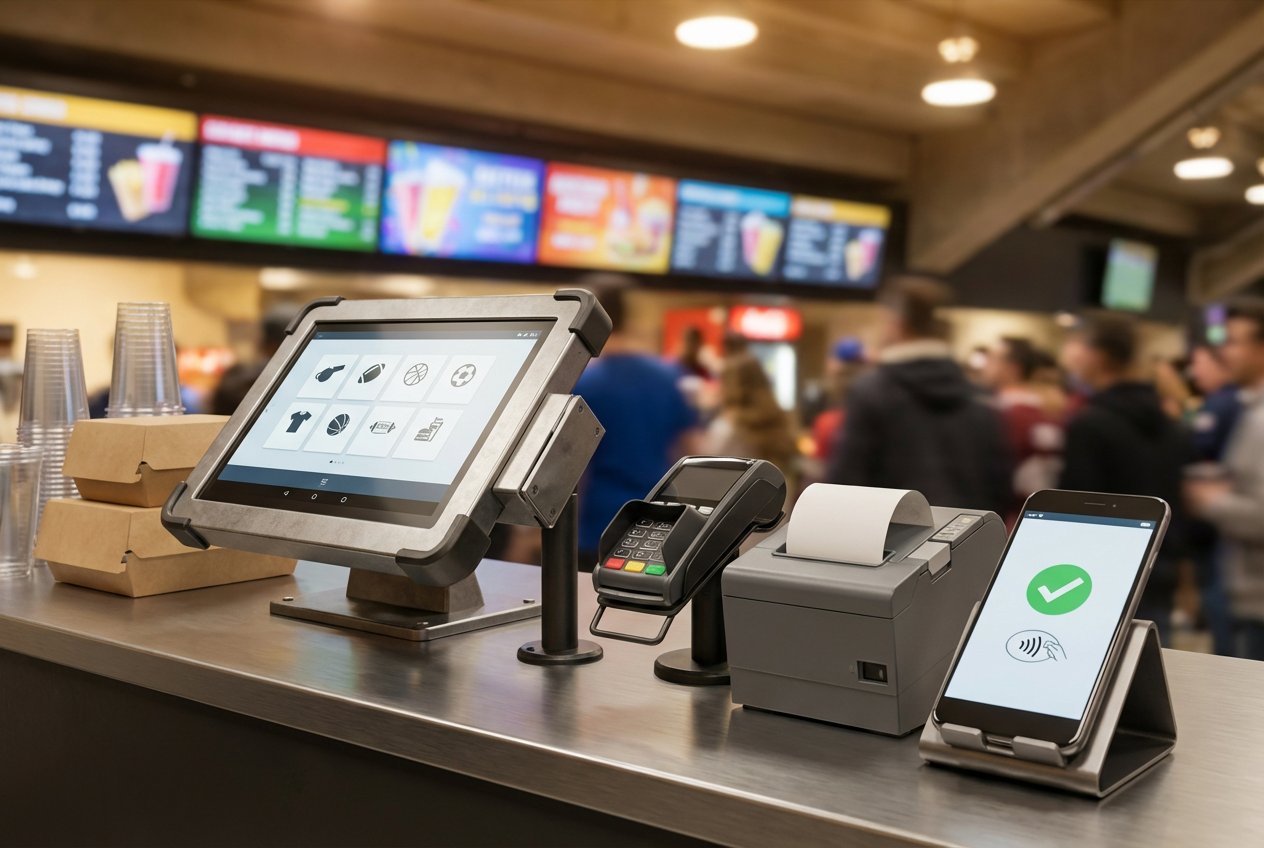Choosing the right point of sale (POS) system is essential for apparel retailers in Thailand aiming to streamline operations, enhance customer experiences, and stay competitive. With a wide variety of features, hardware options, and pricing structures available, it’s important to understand what you’re paying for and what you truly need.
This pricing guide breaks down the key factors to consider when selecting an apparel point of sale system Thailand. Whether you’re opening a new store or upgrading your current system, ConnectPOS – Thailand’s trusted POS service provider – can help you make the right choice.
Highlights:
- Different pricing structures offer flexibility depending on your business size and needs. One-time licenses – larger retailers looking for long-term savings; subscription plans – small to mid-sized stores needing flexibility and lower upfront costs; custom enterprise solutions – large chains needing tailored features and dedicated support.
- Total POS costs include the POS software, hardware, onboarding fees, maintenance, and optional features such as integrations. Knowing these in advance helps prevent unexpected expenses.
- A good apparel point of sale system Thailand must comply with local tax regulations and support integrations with Thai banks and PromptPay. Thai-language interfaces and local support services ensure smoother daily operations and faster issue resolution. These factors can influence both functionality and pricing.
What is an Apparel POS System?
An apparel point of sale system Thailand is designed specifically for clothing and fashion retailers operating in a competitive and fast-moving market. It manages key retail functions like checkout, inventory, customer data, and product variations under one platform. These systems are built to match the day-to-day demands of fashion businesses, including managing stock across multiple branches to running promotions tailored to customer behavior.
Must-have features for fashion and clothing retailers:
- Size and color matrix: Manage product variations under one listing, making it easier to organize and sell items with multiple sizes and colors. Instead of creating separate entries, the system organizes products by size and color under one listing. This simplifies inventory tracking and speeds up the sales process.
- Stock tracking across branches: Retailers can view real-time inventory levels in each location, reducing the risk of overstocking or running out of popular items.
- Omnichannel sales integration: Apparel POS systems also support omnichannel sales integration. This connects physical stores with online platforms, syncing orders, inventory, and customer data for a seamless experience.
- Promotion and loyalty management: Promotion and loyalty management features help businesses attract and retain customers. Retailers can create targeted discounts, run special campaigns, and track customer points or rewards – all within the system.
- Support for local regulations and tax settings: Retailers in Thailand need compliance-ready systems. A localized apparel point of sale system can apply VAT, generate tax-compliant receipts, and adjust settings to match regional business rules.
- Multi-branch access and control: Set access permissions by staff role and store location. This keeps sensitive information secure and allows branch managers to focus on daily operations without affecting system-wide settings.
Common Pricing Models for an Apparel Point of Sale System in Thailand
When selecting an apparel POS system in Thailand, it’s important to understand the different pricing models available. Each option has its own benefits and limitations depending on your business size and goals.
- One-time License Purchase
This model involves a single upfront payment to own the software permanently. It’s ideal for large apparel retailers with the budget to invest in long-term solutions.
The main advantage is lower total cost over time, especially for businesses that don’t want recurring fees. However, upfront costs are high, and additional charges may apply for updates, support, or system upgrades.
- Subscription-Based (SaaS)
Software-as-a-Service (SaaS) models offer monthly or yearly payment plans. These are best suited for small to mid-sized fashion retailers seeking flexibility and lower entry costs. Subscriptions often include updates, cloud storage, and customer support.
While convenient, the ongoing fees can add up over time, especially as your business grows or adds more locations.
- Custom Enterprise Solutions
For large or multi-store POS operations with specific needs, enterprise solutions offer tailored features, advanced integrations, and dedicated onboarding. Pricing is usually customized based on requirements. This option provides maximum control and support but comes at a premium and often includes a longer setup time.
►►► Optimal solution set for businesses: Multi store POS, Next-gen POS, Inventory Management Software (MSI), Self Service, Automation, Backorders
Typical Cost Components to Consider
When budgeting for an apparel point of sale system in Thailand, it’s important to account for all typical cost components – not just the software itself.
- Software Subscription or Licensing Fees
This is the core cost of using the POS system. Subscription plans are paid monthly or annually, while licensed software usually involves a one-time payment. The price depends on the features, number of users, and store locations.
- Hardware Costs
POS systems often require hardware such as terminals, tablets, receipt printers, barcode scanners, and cash drawers. Costs vary depending on brand and specifications, but they are a significant part of the initial investment.
- Onboarding and Installation
Some providers charge setup fees for system configuration, user training, and data migration. This ensures your staff can use the system efficiently from day one.
- Support and Maintenance
Ongoing support, software updates, and maintenance may be included in the subscription fee or billed separately. Reliable support is crucial to resolve issues quickly and avoid downtime.
- Optional Add-ons
Additional features like eCommerce integration, warehouse management, and CRM POS tools may come at an extra cost. These add-ons can boost business efficiency, but should align with your specific needs and budget.
Local Factors That Influence POS Pricing in Thailand
Several local factors influence the pricing of apparel POS systems in Thailand. These elements can affect both the upfront and ongoing costs, so it’s important to evaluate them before making a decision.
- VAT and Thai Tax Compliance Support
An apparel point of sale system Thailand must comply with local tax regulations, including VAT documentation and e-tax invoice generation. Solutions that offer built-in tax compliance features may cost more but save time and reduce errors in the long run.
- Integration with Local Banks and PromptPay
Many Thai retailers require payment systems that connect with local banks and support PromptPay QR payments. POS solutions offering this integration can streamline transactions but may come at a higher price due to added development and support.
- Thai Language Interface and Customer Support
A Thai-language interface ensures staff can use the system comfortably. Access to Thai-speaking support is also crucial. Providers offering localized language support often charge slightly more but deliver better usability and service quality.
- Hardware Import Costs and Local Sourcing
Imported hardware can drive up costs due to taxes and shipping. Choosing locally sourced equipment or providers with local partners may reduce expenses.
- Government Incentives for SMEs
Thailand’s digital transformation initiatives may offer grants or tax benefits to SMEs investing in POS systems, helping offset initial costs.
Introducing ConnectPOS: Smart, Scalable Apparel Point of Sale System Thailand
ConnectPOS is a trusted provider of specialized POS solutions for the fashion and apparel retail industry in Thailand. Designed to help clothing retailers streamline daily operations and grow efficiently, ConnectPOS combines powerful features with localized support.
Key features designed for apparel stores:
- Advanced inventory with size/color matrix: ConnectPOS is built with apparel businesses in mind, offering an advanced inventory system that supports size and color variations in a single product listing.
- Real-time sync across offline and online channels: The system allows real-time synchronization across physical stores and online platforms, ensuring accurate stock levels and consistent customer data.
- Mobile POS with user-friendly interface: Retailers benefit from a mobile POS system with a clean, user-friendly interface available in both Thai and English, making it easy for staff to use.
- Integration with major platforms: ConnectPOS also integrates smoothly with popular e-commerce platforms, including Shopify, WooCommerce, and Magento, as well as local payment gateways such as PromptPay and Thai banks.
- Transparent pricing plans: With clear, transparent pricing plans and no hidden fees, ConnectPOS offers cost-effective solutions for businesses of all sizes.
- Dedicated local support team: Thai-based support ensures timely help and local expertise.
- Scalable options: Suitable for single boutiques or expanding apparel chains with multiple locations.
In Conclusion,
Choosing the right POS system is a key investment for any apparel retailer in Thailand. Understanding the pricing models, typical cost components, and local market factors can help you make an informed decision that fits your business size, goals, and budget. From size and color inventory management to omnichannel integration and localized support, the right solution should do more than process sales.
ConnectPOS offers a smart, scalable POS system tailored for the fashion and apparel industry in Thailand. With transparent pricing, powerful features, and a dedicated local team, ConnectPOS is ready to help your retail business thrive.
Ready to find the perfect apparel point of sale system Thailand? Contact ConnectPOS today to get expert advice and a customized demo.
FAQ: Apparel Point os Sale System Thailand
1. What features should an apparel POS system have?
An apparel POS system should include features tailored to fashion retail, such as a size and color matrix, stock tracking across multiple locations, omnichannel sales integration, and tools for managing promotions and loyalty programs.
2. Can an apparel POS system integrate with my online store?
Yes, most modern apparel POS systems offer integration with popular eCommerce platforms like Shopify POS, Magento POS, and WooCommerce POS. This allows you to sync inventory, orders, and customer data across both online and offline channels.
3. Do I need to buy new hardware for a POS system?
Not always. Some apparel point of sale system Thailand work with existing hardware, while others may require specific terminals, barcode scanners, or printers. It depends on the software provider and the features you need. ConnectPOS, for example, offers flexibility and can run on various devices, including tablets and existing POS setups.
4. Is ConnectPOS suitable for apparel businesses in Thailand?
Yes, ConnectPOS is specifically designed for the needs of fashion and apparel retailers in Thailand. It supports Thai language, integrates with local payment gateways, complies with local tax requirements, and provides dedicated support from a local team.
►►► Optimal solution set for businesses: Shopify POS, Magento POS, BigCommerce POS, WooCommerce POS, NetSuite POS, E-Commerce POS



